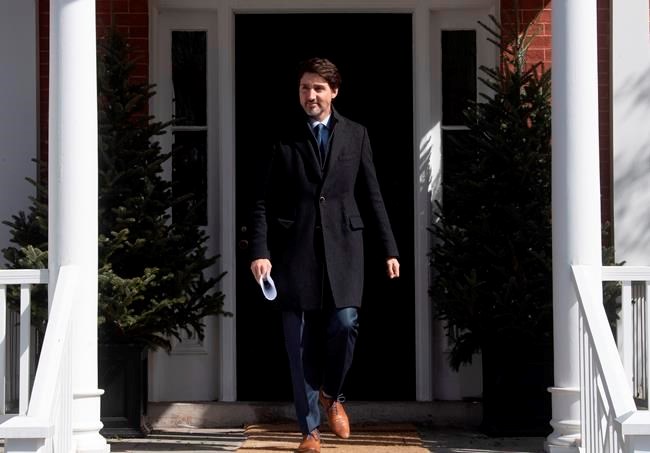Premier John Horgan was more interested Tuesday in pressing Ottawa for action on the economic response to the pandemic than showing his own hand. He did commit to introducing a quick employment law amendment that will allow workers to self-isolate without facing punitive actions. But the rest of B.C.’s initial economic response will have to await the federal government’s moves, which are expected soon.
It’s an understandable stance, given how closely aligned federal and provincial mechanisms are. And it gives B.C. Finance Minister Carole James more time to put together the province’s financial framework for emergency economic aid.
The amendment needs to be legislated and Horgan said there are talks underway with the opposition to do it in a remarkable fashion.
The 87-seat legislature, now in the last week of a spring recess, could reconvene with a skeleton crew of MLAs on hand, a bare quorum. Horgan said a full sitting would not be consistent with social-distancing. So they’re talking with a co-operative opposition about having “a vigorous debate” on the changes without packing the assembly hall.
In the meantime, he urged quick federal changes to employment insurance. Ottawa has already promised to expedite claims, but B.C. is advocating for extending EI to people who wouldn’t normally qualify — self-employed, part-timers, contractors.
Both governments’ responses will likely be on a scale never seen before. They’ve both adopted what Horgan called the “go big or go home” approach to dealing with COVID-19.
The extreme nature of the emergency health protocols now obvious everywhere will be matched by the economic rescue packages. B.C.’s version will attempt, among many other things, to address concerns the stricken business community has expressed. In a letter to both governments and in a subsequent interview, Victoria Chamber of Commerce CEO Catherine Holt outlined the needs locally and province-wide.
She said the crisis struck at a bad time for the big tourism component of Victoria’s economy. It thrives during the season, but businesses have to stretch to get through the slower winters. Many are “tapped out” by the time tourism season starts again, which would normally be now.
But they still have to meet the rigorous schedules for remitting taxes that governments impose, complete with late fees and interest charges.
The chamber wants governments to waive all late filing penalties and instalment interest on balances owing. It calls on government to be flexible regarding timing and deadlines.
Provincially, that would involve the employer health tax, provincial sales tax and workers’ compensation premiums.
Federally, employers routinely have to remit the various payroll taxes — income tax deductions, EI and pension contributions. It’s a substantial regular cash flow that can’t be sustained when the economy is so drastically curtailed.
Holt’s letter signed by other business leaders, also asks the B.C. government to remove municipalities’ power to charge 10% on late payment of property taxes.
James on Tuesday was non-committal about the specific requests. “We are in the process of reviewing all that. The first key, of course ... will be to look at what the federal government package looks like.”
B.C. will check it for gaps that need to be filled, or opportunities to add more provincial support to the federal response.
The staggering sweep of the public health directives are fair, in that they apply to everyone.
The subsequent challenge for governments is to make sure the economic rescue package is reasonably fair as well. It has to cover employees and employers, big industries and small business.
“We’re all in this together,” said Horgan.
Hold that thought.
Just So You Know: Horgan also fine-tuned B.C.’s initial concerns that the federal border closure only applied to overseas foreign travellers, not the Canada-U.S. border.
He reiterated Health Minister Adrian Dix’s message Monday that U.S. visitors are not currently welcome in B.C. “Best to come in August, not come in April.”
But he said trade lines have to stay open to make sure grocery shelves are stocked.
Referring to local concerns about why the Coho ferry is still running, Horgan said: “It’s bringing Canadians home, which was the request of the federal government.”



